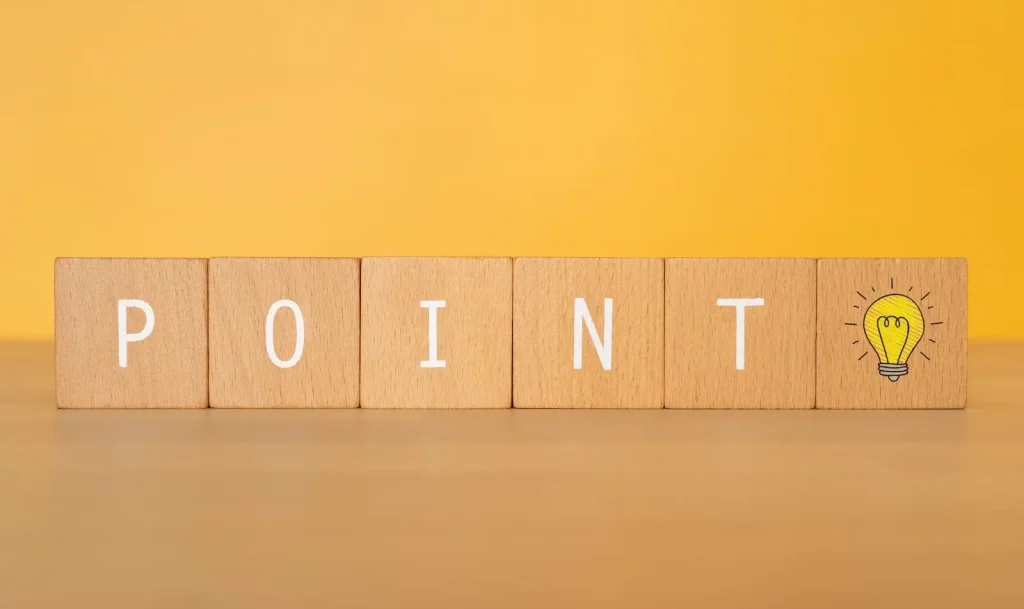List available! Explanation of the correct use of keigo in Japanese and the situations in which it is used, with example sentences.

In Japan, honorific expressions are used in various places and situations. Knowledge of honorifics is essential for those who wish to work or have a part-time job in Japan or are planning to stay in Japan for a long period of time, as correct use of honorifics in accordance with the person or situation will enable better communication.
In this article, we will explain the basics of honorifics and how to use them in an easy-to-understand manner with example sentences. Let's learn which honorifics to use in which situations through practice.
It is also recommended to deepen your understanding of honorifics that are often used in business situations but are actually prone to error. For example, "I am a member of theTen commonly mistaken business honorifics! Japanese to watch out for in job hunting and at workIn the "10 examples of such honorifics to be aware of" section, we discuss 10 examples of such honorifics.
Let's take a closer look at the correct honorifics and how to use them, with a list.
▼Goandup Picks Click here for recommended articles!
- Required before studying abroad! Goandup Nihongo+, an online Japanese language learning service
- This page introduces services for foreigners who wish to study in Japan or improve their Japanese language skills to learn Japanese online.
- Goandup Salon" community for foreigners living in Japan
- We introduce an online community where foreigners living in Japan can exchange information and interact with each other to support their life in Japan.
- Goandup Study" supports foreigners who want to study in Japan.
- This section introduces study abroad support services that provide comprehensive support to foreigners who wish to study in Japan, from preparation for study abroad to living in Japan.
- Where can I buy a prepaid SIM in Japan? Recommended SIM cards for foreigners are also introduced.
- How to purchase a prepaid SIM and suitable SIM cards for foreigners.
- The Complete Guide to Pocket Wi-Fi in Japan for Foreigners!
- We introduce how to select and recommend pocket Wi-Fi products that can be used conveniently in Japan.
- The Complete Guide to Finding a Job in Japan! Finding a job, changing jobs, and part-time work for foreigners
- This site provides foreigners who want to work in Japan with comprehensive information on how to find a job, recommended job sites, and other information necessary to find a job.
What is Japanese Honorifics?

Honorifics are the basic language used in Japanese communication to show respect for the other person or situation. This includes various situations that require politeness, such as with superiors, such as seniors, superiors, and first-time acquaintances, as well as in official and business settings.
This language usage must be used appropriately, as the honorific to be chosen depends on the relationship with the other party and the situation at that time. In daily life and work in Japan, proper use of honorifics is very important to show respect to others and to build good relationships with them.
The difference between the three types of honorifics (honorific, humble, and polite) and how to distinguish between them

There are three main types of honorifics. These are used according to "who is performing the action in the sentence.
Types of honorifics (1) Honorifics (Sonkeigo)
Honorifics are expressions of respect and deference to the other person. It is used when the person acting in the sentence is a superior, such as a senior, boss, or teacher.
Kinds of honorifics (2) Kennjyougo (humble language)
Humble language expresses respect for others by understating the actions of oneself or those who belong to one's inner circle (e.g., one's own family or one's own company). It is used when the person acting in the sentence is yourself or your own people.
Types of honorifics (3) Teineigo
Polite words are used to express things politely in general, not just to a specific person or occasion. It is a basic honorific in Japanese that can be used in a variety of situations.
List of honorific, humble and polite words
We have compiled a list of commonly used expressions.
| English | basic type | honorific language | humble language (e.g. itadaku) | polite language (i.e. masu, desu, etc.) |
| Do | Suru | Nasaru Sareru | Itasu Saseteitadaku | Shimasu |
| Be | Iru | Irassyaru | Oru | Imasu |
| Go. | Iku | Irassyaru Oideninaru | Mairu Ukagau | Ikimasu |
| Come | Kuru | Irassyaru Oideninaru Omieninaru Okoshininaru | Mairu Ukagau | Kimasu |
| Meet | Meet (Au) | Oaininaru Awareru | Omenikakaru | I will see you (Aimasu) |
| Watch | See (Miru) | Goranninaru | Haikensuru | Mimasu |
| Listen (e.g. to a radio or television program) | Hear (Kiku) | Okikininaru Omiminihairu | Haicyousuru Ukagau | Kikimasu |
| Say | Say (Iu) | Ossyaru Iwareru | Mousu Mousiageru | I say (Iimasu) |
| Eat | Eat (Taberu) | Mesiagaru Otabeninaru | Itadaku Cyoudaisuru | Eat (Tabemasu) |
| Know | Shiru | Osirininaru(Osirinaru) know(Gozonji) | Zonjiru Zonjiageru Syouchisuru | I know (Sitteimasu) |
What are the situations in which honorifics are used?

Honorifics are used in Japan on a daily basis at work, school, public institutions, banks, and many other places. In conversations with people you meet for the first time, it is common to use honorifics regardless of the other person's age or position. In communication at the workplace, it is also advisable to use honorifics when other people are around, even if you are getting to know your coworkers in private.
In school, students should always use honorifics toward their teachers, even if the teacher may be friendly toward the student. However, it is common not to use honorifics with family members, close friends, lovers, and others with whom one has a close relationship. In such cases, using honorifics may instead create a sense of distance.
【 problem type 】 honorific usage and example sentences

Now, let's practice the actual use of honorifics.
Try changing the following example sentences into honorifics. Try it while considering your choice of honorific and humble language.
Example sentence 1: "The president is coming."
Example 2: "The teacher eats the school lunch."
Example 3: "My father looks at the picture."
Example 4: "I'm having lunch with my boss."
↓arrow (mark or symbol)
↓arrow (mark or symbol)
↓arrow (mark or symbol)
↓arrow (mark or symbol)
↓arrow (mark or symbol)
- Solution 1(The president is here.) (It is also correct to say, "You are here" or "You are coming.")
- explanationThe president is the one who acts, so respectful language is used.
- Solution 2(The correct answer is "The teacher will eat the school lunch.") (It is also correct to say, "The teacher will eat the school lunch.")
- explanationThe teacher is the subject of the action, so respectful language is used.
- Solution 3: "My father will see the pictures."
- explanation: Since the subject of the action is the speaker's father, the humble language is used. Although we are close to each other, we can use humble language to show respect.
- Solution 4: "I'm having lunch with my boss."
- explanationIn this sentence, since the subject of the action is himself/herself, the humble language is used. Even if your boss is acting with you, it is appropriate to use humble language for your own actions.
When learning how to use honorifics, it is important to have a good understanding of the meaning and usage of grammar and words that are often mistaken by learners of Japanese.
."Let's learn correct Japanese! Japanese Grammar and Word Meanings that Foreigners are Prone to MistakeIn "The Japanese Language", we discuss examples of common misuse by Japanese language learners and introduce tips on how to learn correct expressions. By learning this article along with keigo, you will gain even more confidence in communicating in Japanese.
How to use honorifics

When using honorifics, you need to choose words appropriately for the person you are addressing and the situation, which may seem difficult at first. However, by learning a few basic tips, anyone can learn to use honorifics with ease.
Tips on how to form honorifics
- Add "o-go" prefixes.: Adding "o" or "go" before a noun or adjective can add softness and respect to the language. When applied, "o" is often added to Japanese words and "go" to Chinese words.
- Memorize respectful forms of speechTo express respect for the actions of others, remember the forms "o(go)~ ni naru" and "~are/iru".
- use humble language properlyWhen describing your own actions or the actions of the group to which you belong, use the "o(go)~" form to express yourself modestly and show respect to the other person.
- Use polite language and be polite in conversation.Polite speech is the basis for any situation. It is important to use the "desu/masu" form at the end of sentences and to always speak in a polite manner.
By remembering these basic rules, you can reduce your anxiety when using honorifics and enjoy more natural communication in Japanese. In particular, the use of "o-go" prefixes and changing verb forms are important points in making honorific expressions more polite.
Serious employment support to help you realize your dream of working in Japan!

Do you want to work in Japan?
Let us "Goandup" make that dream a reality!
【 Program Features 】
✅ JLPT N3 level Japanese language acquisition
✅ Thorough preparation for the specific skills test
✅ Full support for job hunting in Japan
Business-focused one-on-one lessons will help you find a job in Japan in the shortest possible time.
【 Program Menu 】
- Individual Japanese language lessons
- Intensive curriculum to obtain N3, especially specialized lessons for business Japanese that can be used at work.
- Intensive curriculum to obtain N3, especially specialized lessons for business Japanese that can be used at work.
- Preparation for the Specific Skills Test
- Customized materials for specific skill tests will be used to focus on frequently asked questions and learning to pass the test.
- Customized materials for specific skill tests will be used to focus on frequently asked questions and learning to pass the test.
- Resume and CV support
- To create resumes and CVs tailored to Japanese corporate culture, and to brush up on self-promotion and motivation for application.
- To create resumes and CVs tailored to Japanese corporate culture, and to brush up on self-promotion and motivation for application.
- Interview Preparation
- Guidance on areas for improvement through mock interviews and feedback based on corporate interview scenarios. Learn interview etiquette and behavior unique to Japan.
- Guidance on areas for improvement through mock interviews and feedback based on corporate interview scenarios. Learn interview etiquette and behavior unique to Japan.
- career consulting
- Provide introductions to companies that match the participant's career goals, select companies to apply to, and provide advice on the level of knowledge required by the companies to which the participant is applying.
- Provide introductions to companies that match the participant's career goals, select companies to apply to, and provide advice on the level of knowledge required by the companies to which the participant is applying.
- Chat Support
- In addition to one-on-one individual lessons, we also accept casual questions via DM (visa application, living support, assistance in finding a room, etc.).
If you are serious about your career in Japan, join us now!
▶︎ for more informationclick here.
We will do our best to support your success in Japan!
summary
In this article, we have delved deeply into the use of honorific expressions. The precise use of honorifics is often difficult for even Japanese people to master in practice. This complexity reflects the subtlety and courtesy of Japanese honorifics.
However, if you can learn proper honorifics, people around you will appreciate your Japanese as "beautiful" and "classy. Also, you can naturally learn honorific expressions through communication with others. The shortcut to improving your Japanese is to try to use it actively without fear of making mistakes.
As a first step, let's start with polite language using the "です・ます" form. From mastering this basic form, you can step up to more complex honorifics.
Correct use of honorific expressions shows respect to others and enables you to build trust. Through daily practice, you will learn to use honorifics naturally.
We also recommend the following articles
▶︎ Potential Forms (Potential Forms in Japanese) are explained in an easy-to-understand manner!
Your support will help us!
Thank you for visiting Goandup Picks. Our mission is to provide you with more useful information to show the world what Japan has to offer.
Your support will help us to further enhance our activities, so please support us!






